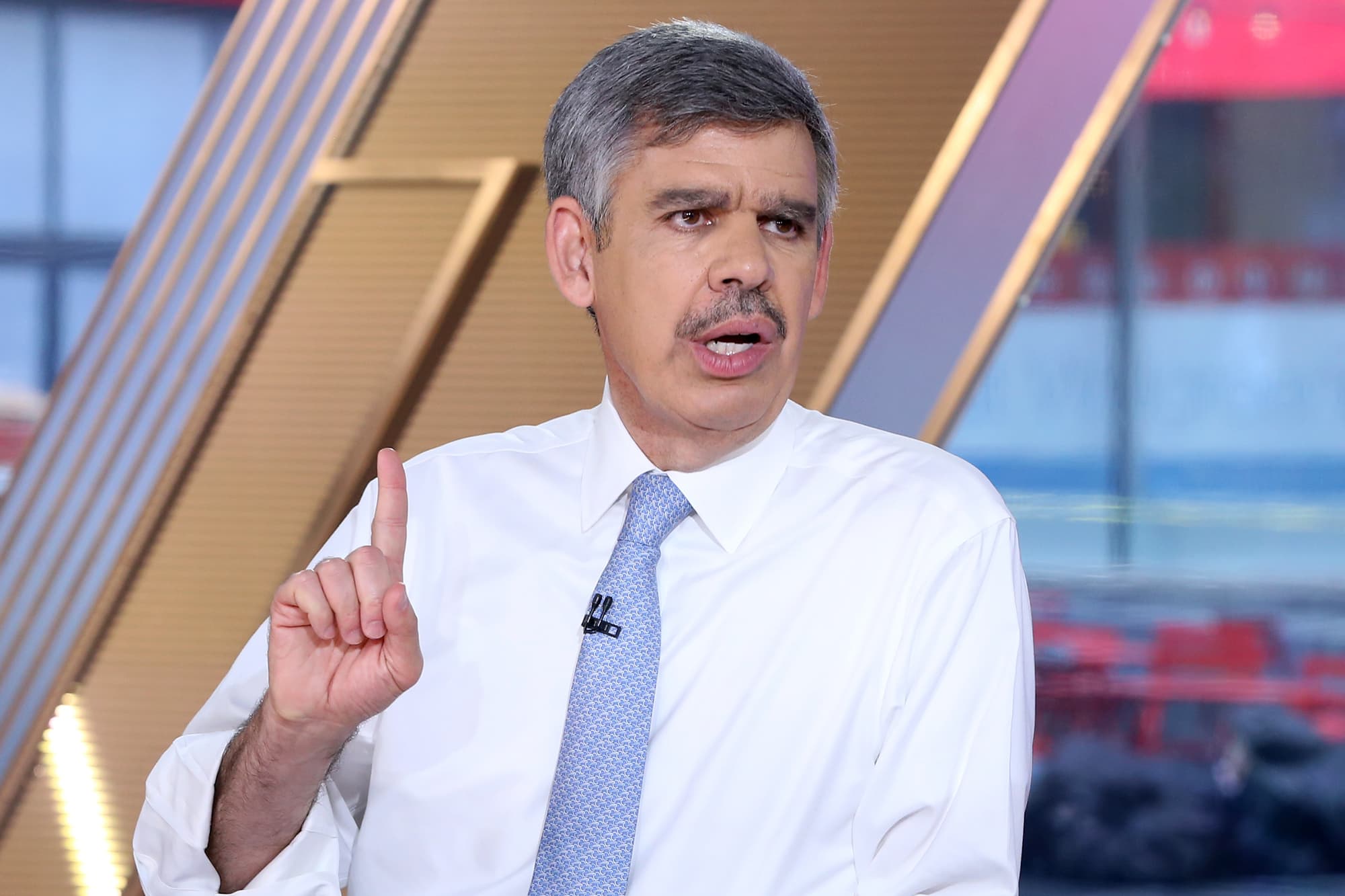
- Calling inflation "transitory" was a historically bad move for the Fed, according to Allianz Chief Economic Advisor Mohamed El-Erian.
- The comments came after the Labor Department reported that the consumer price index rose 6.8% from a year ago in November.
- The Fed has a policy meeting this week during which it is expected to act to combat inflation.
Calling inflation "transitory" was a historically bad move for the Federal Reserve, according to Allianz Chief Economic Advisor Mohamed El-Erian.
"The characterization of inflation as transitory is probably the worst inflation call in the history of the Federal Reserve, and it results in a high probability of a policy mistake," the former Pimco CEO and current Queens' College president said Sunday on CBS' "Face the Nation."
El-Erian's comments came just after the Labor Department reported that the consumer price index, a broad-based measure of inflation, rose 6.8% from a year ago in November.
Though the number was only slightly ahead of Wall Street expectations, it still marked the biggest 12-month move since 1982, back when the U.S. was battling the worst inflation it had ever seen. Even stripping out food and energy prices, the CPI rose 4.9%, which was its biggest gain in about 30 years.
Fed officials long had said they expected the inflation surge to be "transitory," as it is being driven by supply chain and demand factors largely associated with the pandemic. However, Fed Chairman Jerome Powell recently said it's time to retire the word as it tends to cause confusion among the public.
El-Erian said the Fed's recognition that price pressures aren't going away is essential to making the proper policy decisions.
The Federal Open Market Committee, which sets interest rates for the central bank, meets this week amid expectations that it will begin tapping the brakes further on its ultra-easy monetary policy. One important step is the likely decision to increase the pace at which it is cutting its monthly bond purchases, which had been aimed at bolstering the economy and keeping interest rates low.
However, markets expect that interest rate hikes are still months away and won't be implemented at least until the bond purchases come to a complete halt, probably around March.
El-Erian told CBS that it is important that the Fed "ease their foot off the accelerator" rather than tightening policy rapidly.
However, in a CNBC interview Monday, he encouraged the Fed speed up the reduction in bond buying, which the market expects to double from the current taper rate of $15 billion a month..
"If I were them, I would do three things, which they will not do," he said during a "Squawk Box" interview. "I would 1) be very open and honest as to why I got the inflation call wrong and try to regain the inflation narrative. 2) I would go even further than doubling the rate of taper, and 3) I would open it up to the possibility that rate hikes may come faster than what the market has. They're not gonna do that.
Markets are assigning about 58% chance for the first quarter-percentage-point rate hike to come in May 2022, followed by up to two more before the end of the year, according to the CME's FedWatch.
For their part, Fed officials following the Wednesday meeting conclusion will release their latest projections for rates, as well as unemployment and GDP growth. The projections are expected to align more closely with market expectations, though policymakers likely will stress flexibility that will depend on data.













